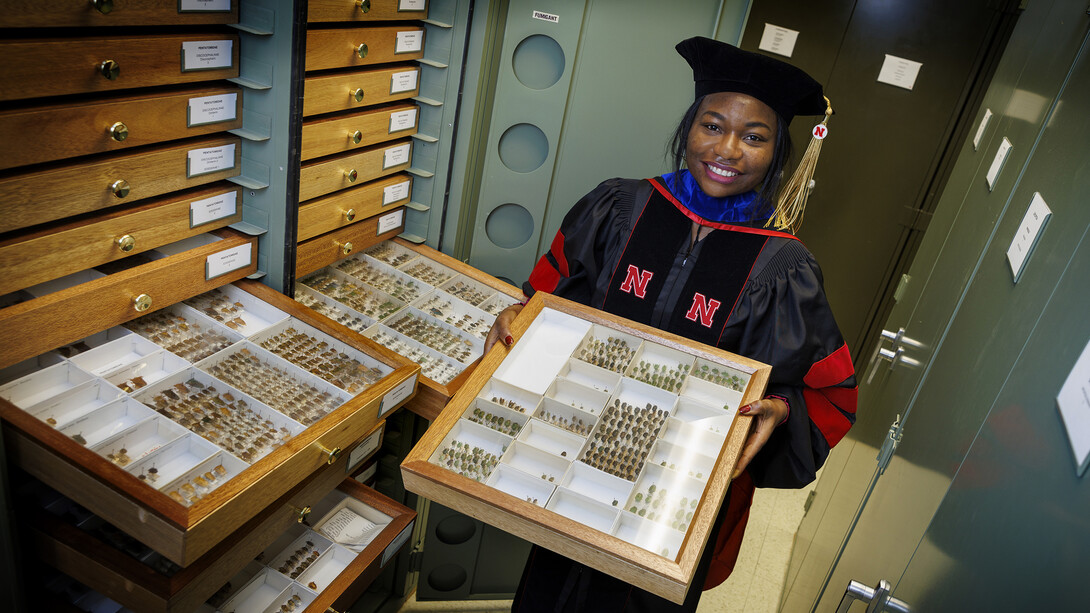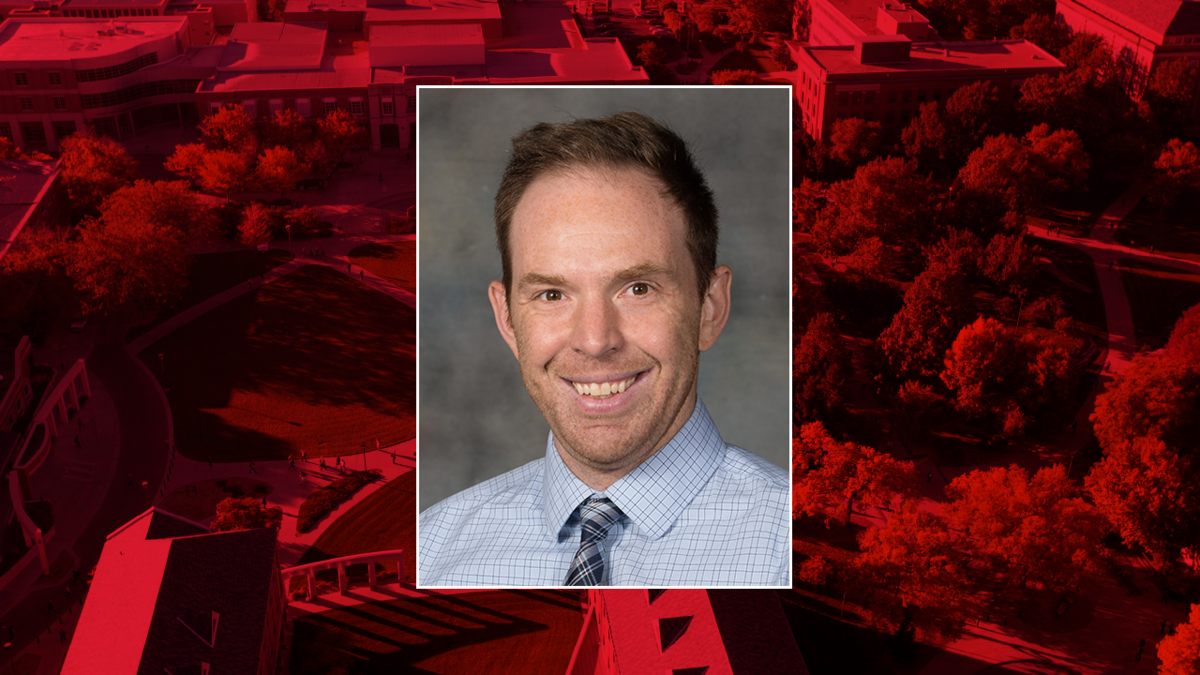
A series of happy accidents brought Blessing Ademokoya here to pursue her doctorate in entomology, but personal tragedy cemented her love of the University of Nebraska–Lincoln and its community.
As an undergraduate student at the Federal University of Technology in Akure, Nigeria, Ademokoya wasn’t really sure what she was going to do with her biology major.
Then, during her second year, she attended a seminar given by a professor of entomology from Auburn University. The presentation included a video of one insect decapitating another. Some might find the video revolting Ademokoya admitted, but for her, it was a lightbulb moment, illuminating new possibilities.
“It was quite fascinating to me,” she said. “He was talking about biological control (of pests) with parasitoids. That’s what got me interested in entomology.”
Ademokoya reached out to the professor and made a connection that brought her to Auburn University for her master’s degree. There, she began her research into phytophagous insect pests and their parasitoids, found her passion in the work and decided to pursue a doctorate.
“I like the field work in the crops, seeing the damage, and identifying the pests that caused it,” she said. “I think it’s the atmosphere. I like being outside.”
Upon completion of her master’s, she was looking for an entomology doctoral program that would allow her to continue field research and a friend sent her a link to a graduate position at Nebraska. It wasn’t exactly what she was looking for, but she made new connections with professors here who suggested she could work on research related to stink bugs — a common but destructive insect — which can also be controlled by parasitoids.
“It’s a pest of many crops, especially corn and soybeans, and it’s been a problem in the southeast for many years, but now it’s becoming more of an issue here, as populations started increasing, and some invasive species have been moving into the U.S.,” she said. “My research identifies the species that are found in crops, understanding their impact in terms of yield loss, and how to manage them.”
She’s published several articles, with six more in process, and her finds from Nebraska fields are slated to become a part of the University of Nebraska State Museum’s permanent collections.
“I’m preparing specimens for the museum, because we found new (species of) stink bugs,” she said. “These may have been found in other states previously, but not reported in Nebraska until now.”
It was while she was searching a field for stink bugs in July 2019 that she received a phone call that would change her life.
“My fiancé called and before that, he’d been a little bit sick,” she said. “He was in the hospital and he’d been diagnosed with cancer.”
Ademokoya and her fiancé, a doctoral student in engineering at Auburn University, began a long journey of treatments and hospitalizations. She often shuttled back and forth between Nebraska and Alabama to be with him and help him recover from chemotherapy.
“The professors and everyone here were so supportive,” she said. “They made everything flexible for me so that I could travel. Everyone helped — my advisors (Bob Wright and Tom Hunt), the department chair (John Ruberson), the students, staff, everyone. I felt the love.”
When the pandemic forced closures in the United States in March 2020, Ademokoya was traveling to Alabama to see her fiancée through another hospitalization.
“I remember the day I got to Birmingham. About one hour later, they said ‘no more visitors,’” she said. “They told me I could stay as long as I remained within the premises. I had to stay in the hospital. I was buying things in the hospital gift shop to get by.”
Four- or five-week stretches in the hospital multiple times during the pandemic — without any friends or family allowed to visit — weighed heavily on Ademokoya, but again, her Nebraska entomology family wrapped her in support.
“They sent care packages, they checked in,” she said. “I was in Alabama and they were sending those things to me… I can’t even explain it. The calls, the messages, everything helped.”
Ademokoya and her fiancé married, but he passed Dec. 4, 2020.
Still, she persevered and returned to Nebraska to finish her degree. As she looks forward to being hooded during commencement exercises Dec. 17, she’s thankful she’s here, surrounded by people who helped prop her up during her darkest days.
“I was just a step from tipping over, and with any pressure, I would have probably dropped out, but they let me go at my own pace,” she said. “If I didn’t have that support, I’m not sure I’d be graduating.
“I’m never going to forget these people who stood by me.”







